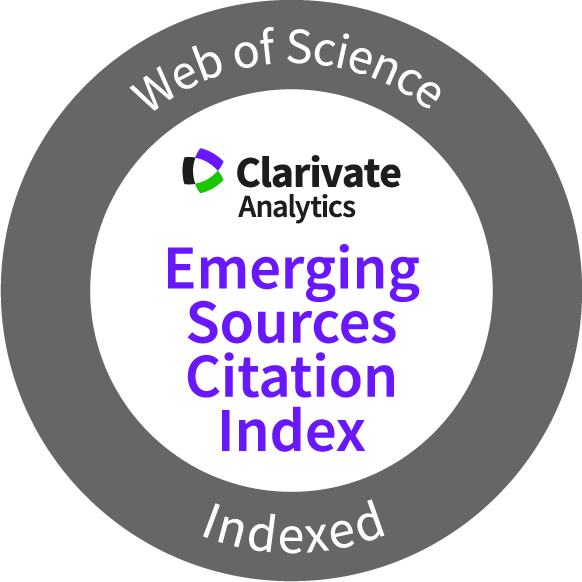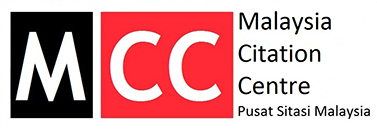DEGRADATION OF DIESEL OIL BY SOIL BACTERIA IN SHAKE FLASK SYSTEM USING FOOD WASTE AMENDMENTS
Keywords:
Degradation, diesel oil, soil bacteria, shake flaskAbstract
Diesel oil contains compounds that can cause harm to humans and the environment. Hence, biodegradation method is an alternative way to reduce the pollution caused by diesel oil. The aim of this study is to determine the diesel oil degradation by soil bacteria amended with food wastes in the flasks system. It also aims to determine the food wastes such as sugarcane bagasse and fishbone to enhance the biodegradation of diesel oil. The degradation analysis was performed in an enrichment culture flask containing soil, diesel oil with the addition of food waste. The degradation analysis was carried out for 42 days at 30°C at 150 rpm. The bacteria was isolated and identified based on colony morphology and biochemical tests. Five potential diesel oil-degrading bacteria were preliminary identified as Pseudomonas fluorescens, Pseudomonas aeruginosa, Klebsiella species, Shewanella putrefaciens and Bacillus cereus. Diesel oil degradation compound was analyzed using Gas Chromatography - Mass Spectrometry. Four compounds namely styrene, ethanol, 2-butoxy, benzene, 1-ethyl-2, 3-dimethyl and benzene 1-ethyl-2, 3-dimethyl showed degradation by bacteria amended with food wastes. The results of this study demonstrate the potential use of food wastes such as sugarcane bagasse and fish bone as substrates for enhancing the remediation of hydrocarbon contaminated soil.
Downloads
Metrics
References
Abioye, P.O., Abdul Aziz, A. & Agamuthu, P. 2010. Enhanced biodegradation of used engine oil in soil amended with organic wastes. Water, Air, and Soil Pollution, 209(1-4): 173-179.
Agarry, S.E. (2018). Evaluation of the effects of inorganic and organic fertilizers and activated carbon on bioremediation of soil contaminated with weathered crude oil. Journal of Applied Sciences and Environmental Management, 22(4): 587-595.
Al-Wasify, R.S. & Hamed, S.R. 2014. Bacterial biodegradation of crude oil using local isolates. International Journal of Bacteriology, 2014: 1-8.
Alves Da Costa, D., Lucas De Souza, C., De Oliveira, E., Saliba, S., Da, J. & Carneiro, C. 2015. Byproducts of sugarcane industry in ruminant nutrition. International Journal of Agronomy and Agricultural Research, 3: 1-9.
Beltrametti, F., Marconi, A.M., Bestetti, G., Colombo, C., Galli, E., Ruzzi, M. & Zennaro, E. 1997. Sequencing and functional analysis of styrene catabolism genes from Pseudomonas fluorescens ST. Applied and Environmental Microbiology, 63(6): 2232-9.
Buha, A. 2011. Polycyclic aromatic hydrocarbon. Retrieved October 27, 2016 from www.toxipedia.org/display/toxipedia/PolycyclicAromatic Hydrocarbons
Das, N. & Chandran, P. 2011. Microbial degradation of petroleum hydrocarbon contaminants: an overview. Biotechnology Research International. 941810.
Das, N. & Das, D. 2015. Strategies for remediation of polycyclic aromatic hydrocarbons from contaminated soil-an overview. Journal of Critical Reviews, 2(1): 20-25.
Deng, M.C., Li, J., Liang, F.R., Yi, M., Xu, X.M., Yuan, J.P. & Wang, J.H. 2014. Isolation and characterization of a novel hydrocarbon degrading bacterium Achromobacter sp. HZ01 from the crude oil-contaminated seawater at the Daya Bay, Southern China. Marine Pollution Bulletin, 83(1): 79-86.
Dou, J., Ding, A., Liu, X., Du, Y., Deng, D. & Wang, J. 2010. Anaerobic benzene biodegradation by a pure bacterial culture of Bacillus cereus under nitrate reducing conditions. Journal of Environmental Sciences (China), 22(5): 709-15.
Fazilah, A., Darah, I. & Noraznawati, I. 2016. Bioremediation of phenanthrene by monocultures and mixed culture bacteria isolated from contaminated soil. International Journal of Biological, Biomolecular, Agricultural, Food and Biotechnological Engineering, 10(9): 495-498.
Ibrahim, M.H., Quaik, S. & Ismail, S.A. 2016. Introduction to Organic Wastes and Its Management. In Prospects of Organic Waste Management and the Significance of Earthworms Springer, Cham, 1-21.
Lang, S., Tarayre, C., Destain, J., Delvigne, F., Ongena, M. & Thonart, P. 2016. The effect of nutrients on the degradation of hydrocarbons in mangrove ecosystems by microorganisms. International Journal of Environmental Research, 10(4): 583-592.
Malde, M.K., Graff, I.E., Siljander-Rasi, H., Venalainen, E., JulShamn, K., Pedersen, J.I. & Valaja, J. 2010. Fish bones – a highly available calcium source for growing pigs. Journal of Animal Physiology and Animal Nutrition, 94(5): 66-76.
Mumtaz, M.M. & George, J.D. 1996. Toxicological profile for polycyclic aromatic hydrocarbon. U.S. Department of Health and Human Services, 1-487.
Rao, M.P., Rajithasri, A.B., Sagar, K. & Satyaprasad, K. 2015. Isolation of polycyclic aromatic hydrocarbons degrading PGPR from a oil products contaminated site in Hyderabad, Telangana State, India. International Journal of Pharma and Biosciences, 6(4): 305-317.
Rodrigues, D.F., Sakata, S.K., Comasseto, J.V., Bicego, M.C. & Pellizari, V.H. 2009. Diversity of hydrocarbon degrading Klebsiella strains isolated from hydrocarbon contaminated estuaries. Journal of Applied Microbiology, 106(4): 1304-1314.
Šepic, E., Bricelj, M. & Leskovšek, H. 1997. Biodegradation studies of polyaromatic hydrocarbons in aqueous media. Journal of Applied Microbiology, 83(5): 561-568.
Zhang, G., Wu, Y., Qian, X. & Meng, Q. 2005. Biodegradation of crude oil by Pseudomonas aeruginosa in the presence of rhamnolipids. Journal of Zhejiang University Science B, 6(8): 725-730.
Published
How to Cite
Issue
Section
Any reproduction of figures, tables and illustrations must obtain written permission from the Chief Editor (wicki@ukm.edu.my). No part of the journal may be reproduced without the editor’s permission

















